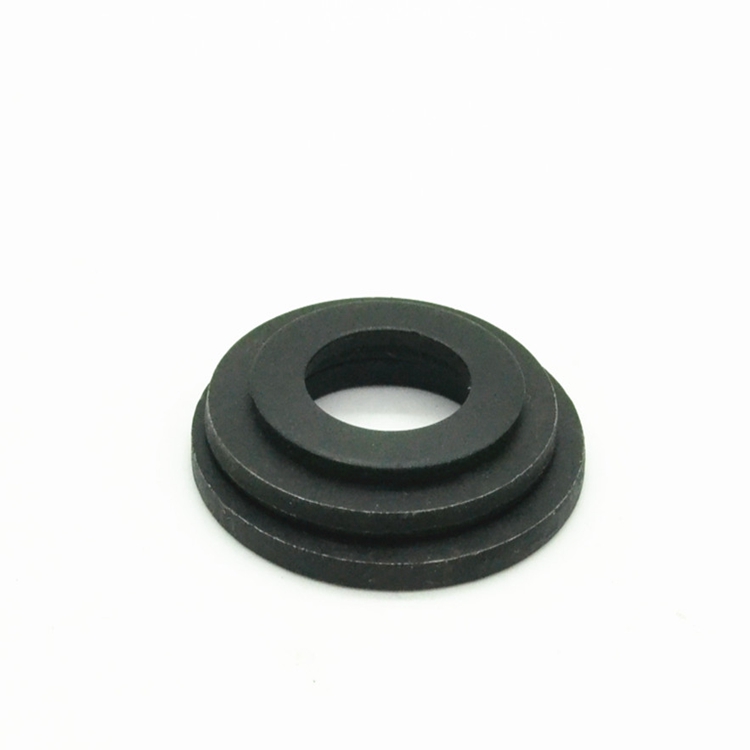ss flat washers exporter
Lis . 22, 2024 00:44 Back to list
ss flat washers exporter
SS Flat Washers Exporter An Overview of the Global Market
Stainless steel (SS) flat washers are essential components in various industries, ensuring that fasteners like bolts and screws have a stable and evenly distributed load. As an exporter of these critical components, businesses must understand the global market dynamics, including demand trends, manufacturing processes, and compliance with international standards.
Understanding SS Flat Washers
SS flat washers are circular discs with a hole in the center, designed to distribute the load of a threaded fastener over a larger area. This distribution minimizes damage to the surfaces being fastened, prevents loosening under vibration, and provides insulation against corrosion. Made primarily from stainless steel, these washers are resistant to rust and are ideal for applications in construction, automotive, aerospace, and manufacturing industries.
Market Demand and Trends
The global demand for SS flat washers has been on the rise, driven by several factors. The expansion of the construction sector and infrastructure projects in emerging economies has significantly increased the need for durable fastening solutions. Additionally, the automotive industry's shift towards lighter materials and improved fuel efficiency has spurred the use of stainless steel components, further propelling the demand for flat washers.
In recent years, there has been an increasing focus on sustainability and eco-friendliness in manufacturing. SS flat washers, being recyclable, align with this trend, making them an attraction for businesses looking to enhance their sustainability credentials. The growth of renewable energy sectors, particularly wind and solar, has also contributed to the rise in demand for these components.
Manufacturing Process
The manufacturing process of SS flat washers involves several steps, including material selection, cutting, shaping, and finishing. High-quality stainless steel alloys such as 304 and 316 are typically used, chosen for their strength and corrosion resistance. The production starts with the selection of raw materials, followed by precise cutting to achieve the desired thickness and diameter.
ss flat washers exporter

After cutting, the washers are shaped using stamping or die-cutting processes. This stage ensures that the washers meet specific tolerances and dimensions as per industry standards. Post-manufacturing processes such as surface finishing, which may include polishing or passivation, are crucial for enhancing corrosion resistance and achieving the required aesthetic quality.
Compliance and Quality Standards
As an exporter of SS flat washers, adhering to international standards and certifications is vital. Various industries require compliance with standards set by organizations like the American National Standards Institute (ANSI), International Organization for Standardization (ISO), and ASTM International. Exporters must ensure that their products meet these standards to facilitate smooth trade and acceptance in foreign markets.
Quality control is an essential aspect of manufacturing flat washers. Rigorous testing methodologies, including tensile strength tests, thickness measurements, and corrosion resistance tests, help ensure that the washers perform effectively in their intended applications. Exporters often maintain detailed documentation of these tests to assure clients of their commitment to quality.
Challenges in the Export Market
Despite the growing demand, SS flat washer exporters face several challenges in the global market. Fluctuations in raw material prices can significantly impact production costs and profit margins. Additionally, geopolitical tensions and trade regulations can create barriers to entry in certain regions, complicating the export process.
Logistics is another critical concern. Efficient supply chain management is crucial to ensure timely delivery while keeping transportation costs in check. Exporters must also navigate customs regulations, tariffs, and import duties, which can vary widely between countries.
Conclusion
The market for SS flat washers is poised for continued growth, driven by increasing demand across multiple industries. As a leading exporter, businesses must focus on understanding market trends, maintaining high manufacturing standards, and adapting to regulatory requirements. By doing so, they can not only enhance their market presence but also contribute to the global push towards sustainable practices in manufacturing. As industries evolve, the importance of quality, reliability, and compliance in the production of SS flat washers will only grow, underscoring their vital role in modern engineering and construction.
Latest news
-
Reliable Wire Bolts Suppliers | Quality Zinc Plated Fasteners
NewsAug.26,2025
-
Wire Bolts Suppliers: Durable & Reliable Fasteners for Every Project
NewsAug.25,2025
-
Premium Cabinet Bolts Supplier | Wholesale & Custom Solutions
NewsAug.24,2025
-
Reliable Axle Nuts Supplier | Quality & Precision Fasteners
NewsAug.23,2025
-
Durable Bolts for Lawn Mower Handle - Top Supplier & Manufacturer
NewsAug.22,2025
-
High-Quality Bolts for Lawn Mower Handle Supplier & Manufacturer
NewsAug.21,2025
